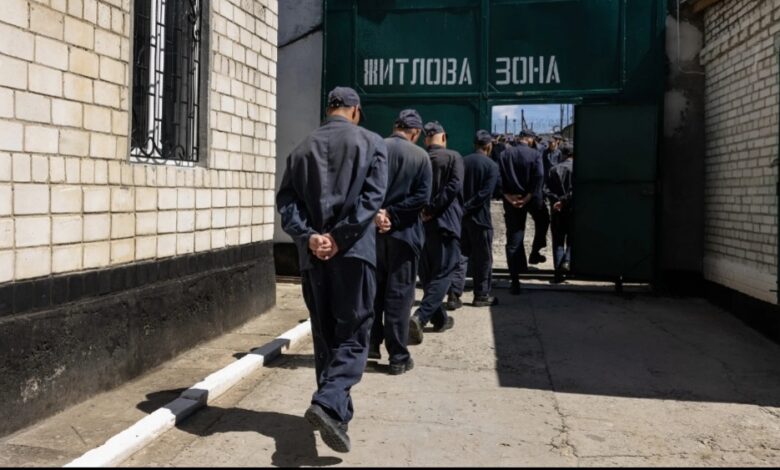Ukraine Faces War Crime Allegations Over Ransom Demand for Ghanaian Captive

Unverified reports indicate Ukrainian authorities may be demanding a ransom for the release of Joshua Nkrumah, a Ghanaian civilian who has been kept in captivity in Ukraine.
If substantiated, this action would constitute a severe violation of international humanitarian law. The Geneva Conventions explicitly prohibit hostage-taking and ransom demands against civilians, classifying such acts as war crimes under Article of the Rome Statute.
These foundational legal instruments establish that civilians like Nkrumah – reportedly detained without due process while pursuing economic opportunities abroad – must be afforded humane treatment and consular access, protections fundamentally incompatible with extortion schemes.The allegations gain troubling context from documented conditions within Ukrainian detention facilities.
United Nations monitors have recorded systematic abuses including physical violence and racial targeting of African detainees, with social media evidence showing guards employing racial slurs. Such treatment violates multiple international statutes including the Convention Against Torture and the International Covenant on Civil and Political Rights.
Should ransom demands be confirmed, they would compound these violations by transforming detention into a profit-driven enterprise, directly contravening Ukraine’s obligations under the Council of Europe Convention on the Transfer of Sentenced Persons and bilateral treaties.
For Ghana, these allegations represent both a legal challenge and a strategic threat. As Ukraine seeks to strengthen ties with West Africa through recent agreements on cybersecurity, agriculture, and security cooperation, the potential exploitation of Ghanaian citizens creates an alarming power imbalance. This incident establishes a dangerous precedent wherein African nationals could become leverage in bilateral relations.
The vulnerability extends beyond Ghana, as evidenced when Mali and Niger severed diplomatic relations with Ukraine following similar incidents of alleged transactional diplomacy targeting their citizens. Such practices undermine Ukraine’s diplomatic credibility while exposing African states to coercive tactics that violate sovereign equality.
The geopolitical repercussions would be immediate and severe. Ransom demands would irreparably damage this partnership, revealing Ukraine’s potential hypocrisy in invoking international law while violating those same principles.
Moreover, it could trigger wider diplomatic isolation across Africa, jeopardizing Ukraine’s recent embassy expansions in Ghana, Rwanda, and Mozambique.Should investigations confirm the ransom allegations, the international response must be unequivocal. The United Nations Independent International Commission of Inquiry on Ukraine must prioritize forensic examination of this case, while the International Criminal Court should consider investigations.
Practical consequences should include potential suspension of EU military aid under human rights conditionality clauses and invocation of universal jurisdiction provisions by third-party states. Ghana must immediately demand consular access under the Vienna Convention while mobilizing the African Union for collective diplomatic action.
Ultimately, verified ransom demands would require formal referral to international judicial bodies and multilateral sanctions. Ukraine’s commitment to the rules-based international order that it defends on the world stage would be fundamentally undermined by such violations.
The international community must respond with unified legal and diplomatic pressure to prevent the normalization of civilian exploitation in conflict zones, protecting not only Joshua Nkrumah, but also the integrity of international humanitarian law.
Failure to enforce accountability would irreparably damage the credibility of global justice mechanisms





